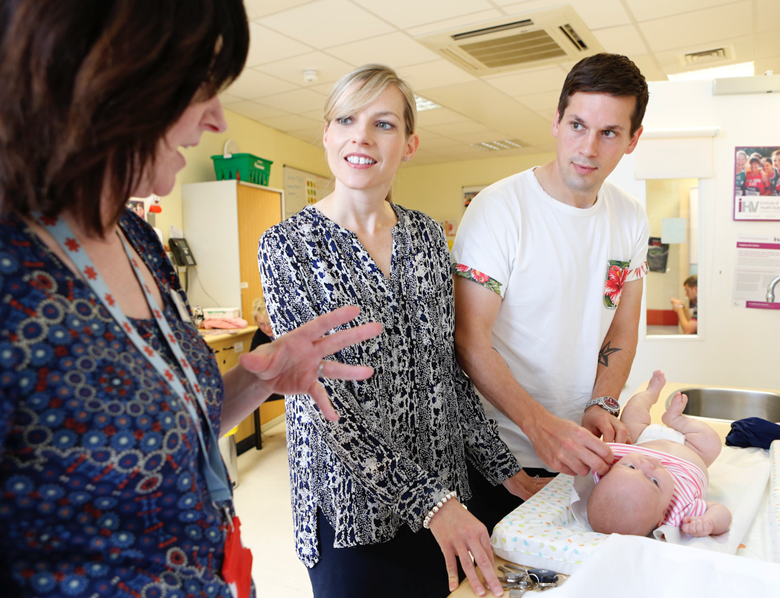Health visitor checks: Public Health England to monitor councils on delivery
Neil Puffett and Gabriella Jozwiak
Thursday, April 13, 2017
The government quango responsible for public health has pledged to ensure that local authorities fulfil their duty to provide health visitor checks for young children, in the wake of a government decision to maintain their mandatory status.

Last month the government confirmed that that health visitor family checks will remain a statutory requirement following a review conducted by Public Health England (PHE).
However, local authority chiefs have raised concerns about delivering the checks in the future climate of reduced funding, with the Local Government Association claiming government cuts to councils' public health grants of nearly 10 per cent over five years threaten to undermine councils' work with children.
In response to the review into the future of health visitor checks, which launched last October, a number of local authorities, including Lewisham Council, said they were considering reducing the number of health visitor checks they provide, and targeting services towards more vulnerable families.
Public Health England's Annual Business Plan for 2017/18 states that one of the organisation's priorities for the coming year will be to work with local government and health visitors to "ensure local delivery of the five 0- to 5 universal checks, to all children everywhere".
The business plan also outlines PHE's intention to provide evidence on health visitor interventions, support the development of a strategy to address the needs of children living with alcohol dependent parents, and lead on prevention work within the national maternity transformation programme.
Last month it emerged that the number of health visitors in England has fallen by nearly 900 in the space of a single year.
Latest NHS statistics show there were 9,410 full-time equivalent health visitors employed in the NHS, compared with 10,309 the year before - a drop of 8.7 per cent.
Cheryll Adams, executive director of the Institute of Health Visiting, said she is concerned that some local authorities will attempt to meet the mandatory requirement to deliver the checks by using lower-skilled members of health visiting teams, such as nursery nurses, who are cheaper to hire.
While she stressed that nursery nurses were "extremely well trained" at delivering developmental checks on children, she pointed out that they are not trained in "wider health issues for the whole family".
"My biggest concern is there are so many different local authorities up and down the country who are designing their children's services in different ways," she said.
"It's not uniform and somebody needs to benchmark it across the country to make sure all children are given the best possible service, and that it meets requirements as a mandate."
Other priorities identified by PHE for the coming year include contributing to reducing childhood obesity. the quango said it will do this by implementing a sugar reduction programme; developing work on salt, fat and total calorie reduction; supporting local delivery including by the wider public health workforce, and working with industry, schools, local government and the NHS.




